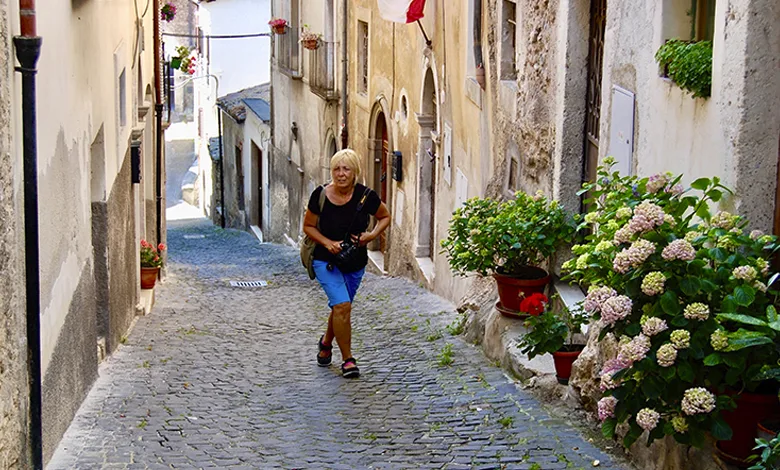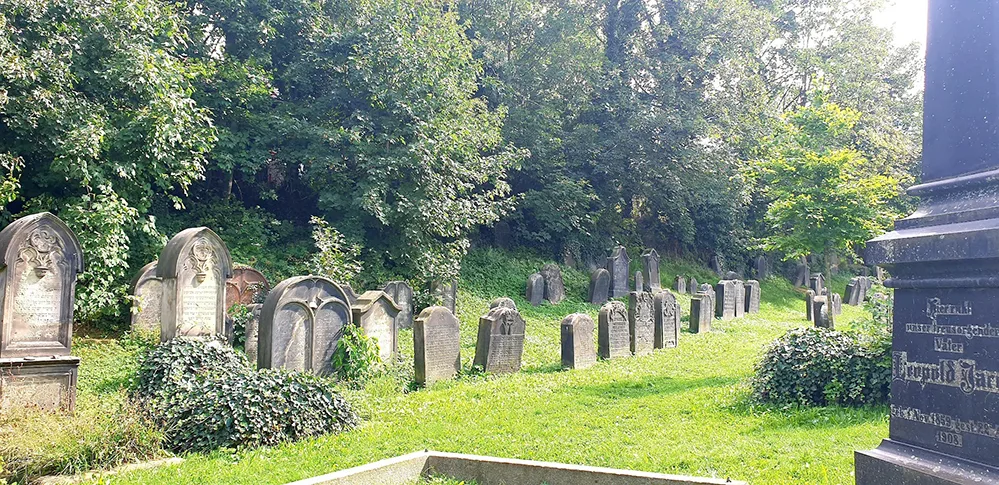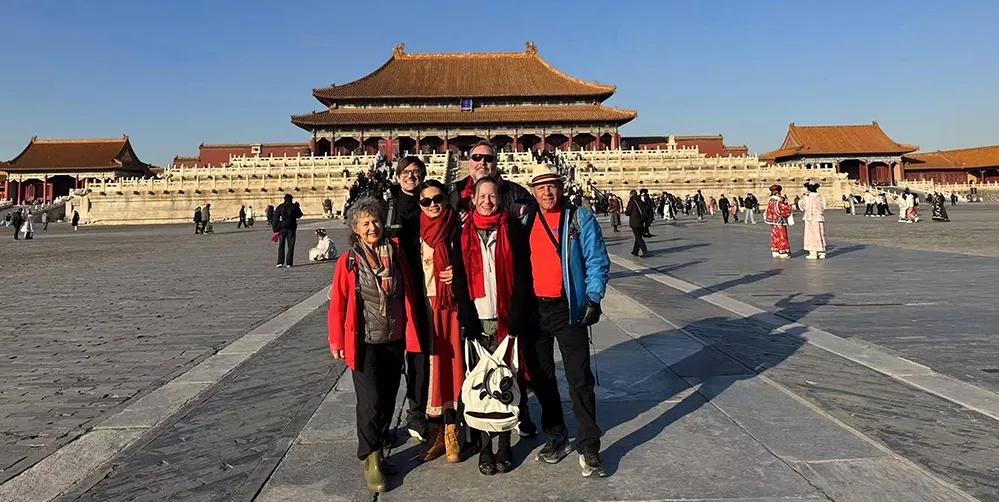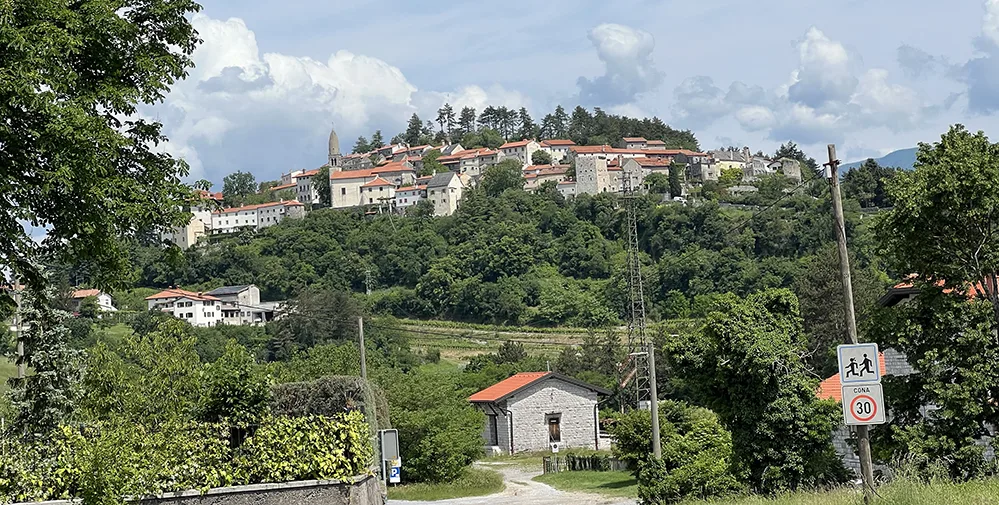Why Heritage and Ancestry Travel are Booming
A journey to the past—to carry into the future

Heritage travel is more than just a vacation — it is a deeply personal journey that connects travelers to their ancestors, history, and identity. With the rise of DNA testing and digital genealogical records, more people are embarking on personal adventures to explore the villages, towns, and countries their families once called home. These journeys often lead to powerful moments of self-discovery, unexpected connections, and a sense of belonging.

The emotional pull of heritage travel.
Julie and Ken Robinowitz, our neighbors in Dallas, have known pieces of their family history for many years. However, standing in front of gravestones in a cemetery in Goslar, Germany, they felt the weight of their ancestry like never before.
They visited Julie’s grandfather’s village in Bavaria, where her great-grandparents are buried. The past felt strikingly present as they traced the names etched in stone — names that had once been a part of stories shared at family gatherings. Julie’s father fled Germany with his family in 1938, shortly before World War II began, escaping the fate that claimed so many of their relatives. This trip wasn’t just about tracing a lineage but also about reclaiming a connection that history had nearly erased.
From discovery to connection: exploring family roots.
For others, heritage travel is not about loss but discovery. My cousin Nancy and her husband, Brian Lewis, traveled to China to meet their great-granddaughter — a bond that spans generations and continents — born from a relationship Brian had in his youth. What began as a personal exploration turned into an unexpected expansion of family, adding richness to their lives in ways they never imagined.
Returning to her homeland: a search for family in Italy.
Chris Cutler’s journey into her Italian roots began with a photograph of her grandmother. “She wasn’t looking at me, but her gaze burned through me,” Cutler remembers. That moment sparked a desire to learn Italian and seek dual citizenship through jure sanguinis (by blood).
Her grandparents, Donato and Liberata, left Pettorano sul Gizio in Abruzzo for a new life in America, arriving at Ellis Island in 1905 and 1906.
Over a century later, Cutler stood in their village, overwhelmed. Even more poignant, she arrived on the fifth anniversary of her mother’s passing. “I think she and Gram were with me that afternoon,” Cutler said.
Her search led to long-lost cousins and uncovered family secrets — some stories her grandparents had told didn’t match reality. She even discovered her great-grandmother’s name, which had been lost for generations.
“We owe our good lives to our brave ancestors. We honor them by discovering their history,” Cutler said, encouraging others to trace their family roots.
Why heritage travel is more than just a trip.
With DNA kits and ancestry websites making it easier than ever to trace one’s lineage, more travelers are setting out on personal journeys to connect with their past.
Heritage tourism—visiting the lands of one’s ancestors—has become one of the fastest-growing travel trends.
It is fueled by a desire to understand personal history, honor family legacies, and forge new relationships with distant relatives.

Heritage travel is driven by:
- The DNA boom: Companies like AncestryDNA and 23andMe allow people to uncover their genetic makeup, often revealing unexpected family connections.
- Digital access to records: Online databases have made genealogy research more accessible, helping travelers pinpoint their ancestors’ villages, homes, and historical records.
- A more profound desire for connection: Unlike a typical vacation, heritage travel is deeply personal, offering a sense of belonging that transcends generations.
For many, it’s not just about visiting a country — it’s about standing on the same soil and walking the same streets their great-grandparents once did, uncovering long-lost stories and forming unexpected relationships.
Cutler experienced this in the hills of Abruzzo, Italy, while tracing her Italian roots. Julie Robinowitz felt it in a quiet Bavarian cemetery where generations of her family rest. The Lewis family’s journey to China introduced them to a new branch of their family tree. Heritage travel isn’t just about history—it’s about discovering how the past shapes who we are today.

How to plan your own heritage journey.
Inspired to trace your roots? Here’s how to get started:
- Begin with research — Talk to older relatives, gather family documents, and use genealogy websites to build your family tree.
- Use DNA and archival tools — DNA testing can uncover ethnic origins, while resources like Ellis Island archives, JewishGen, and national census records can provide valuable historical insights.
- Find local guides — Many regions rich in ancestry tourism have experts who help travelers navigate records and discover family connections.
- Prepare for emotional moments — These trips often bring unexpected emotions — from joy to grief to deep reflection — as more is learned about families.
The power of heritage travel.
Heritage travel isn’t just about the past—it’s about shaping the future. Whether reconnecting with lost relatives, uncovering family history, or simply standing in the place where it all began, these journeys transform how we see ourselves and our place in the world.
For those curious about their roots, there’s never been a better time to explore. Because sometimes, the greatest journeys aren’t about going somewhere new — they’re about going home.





